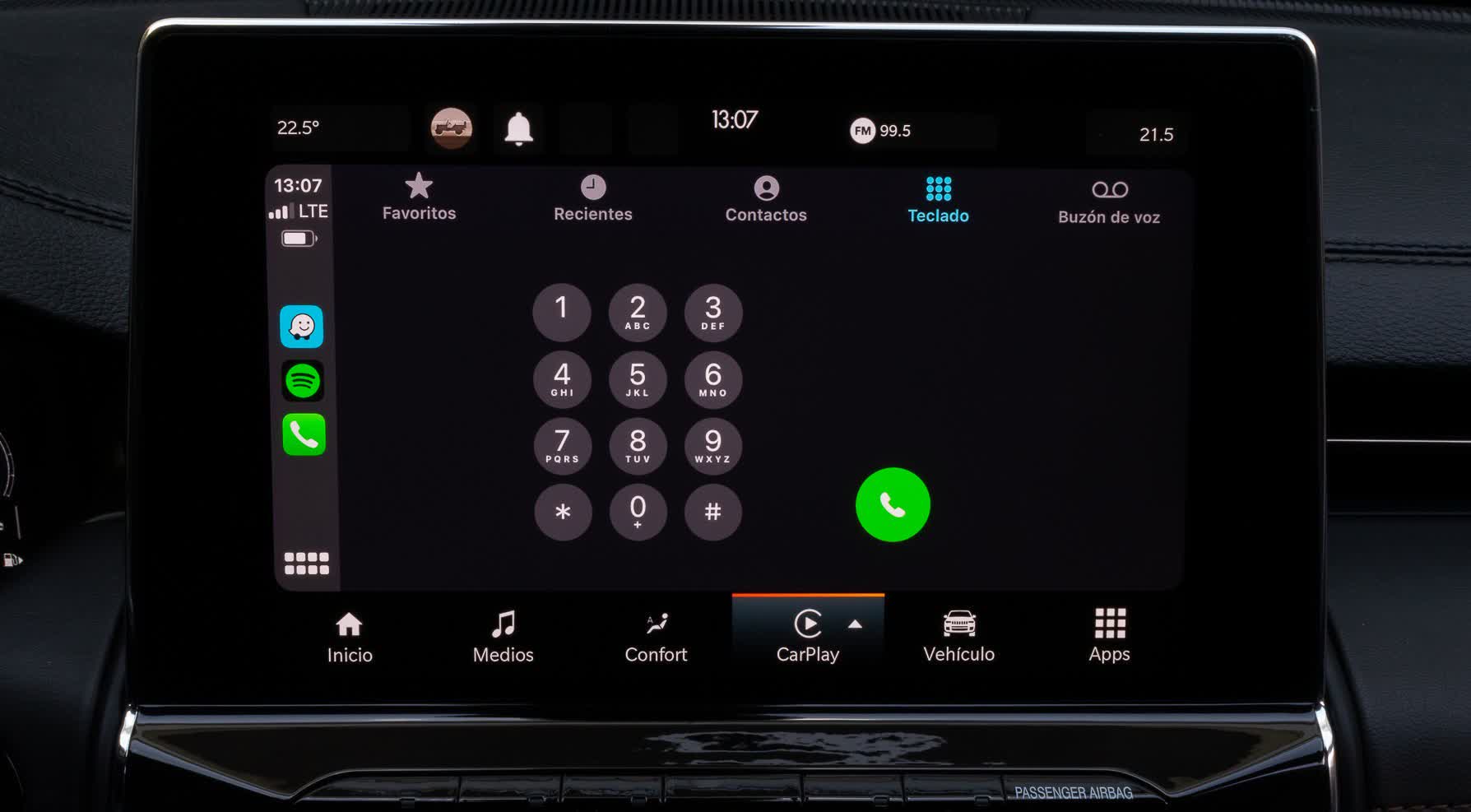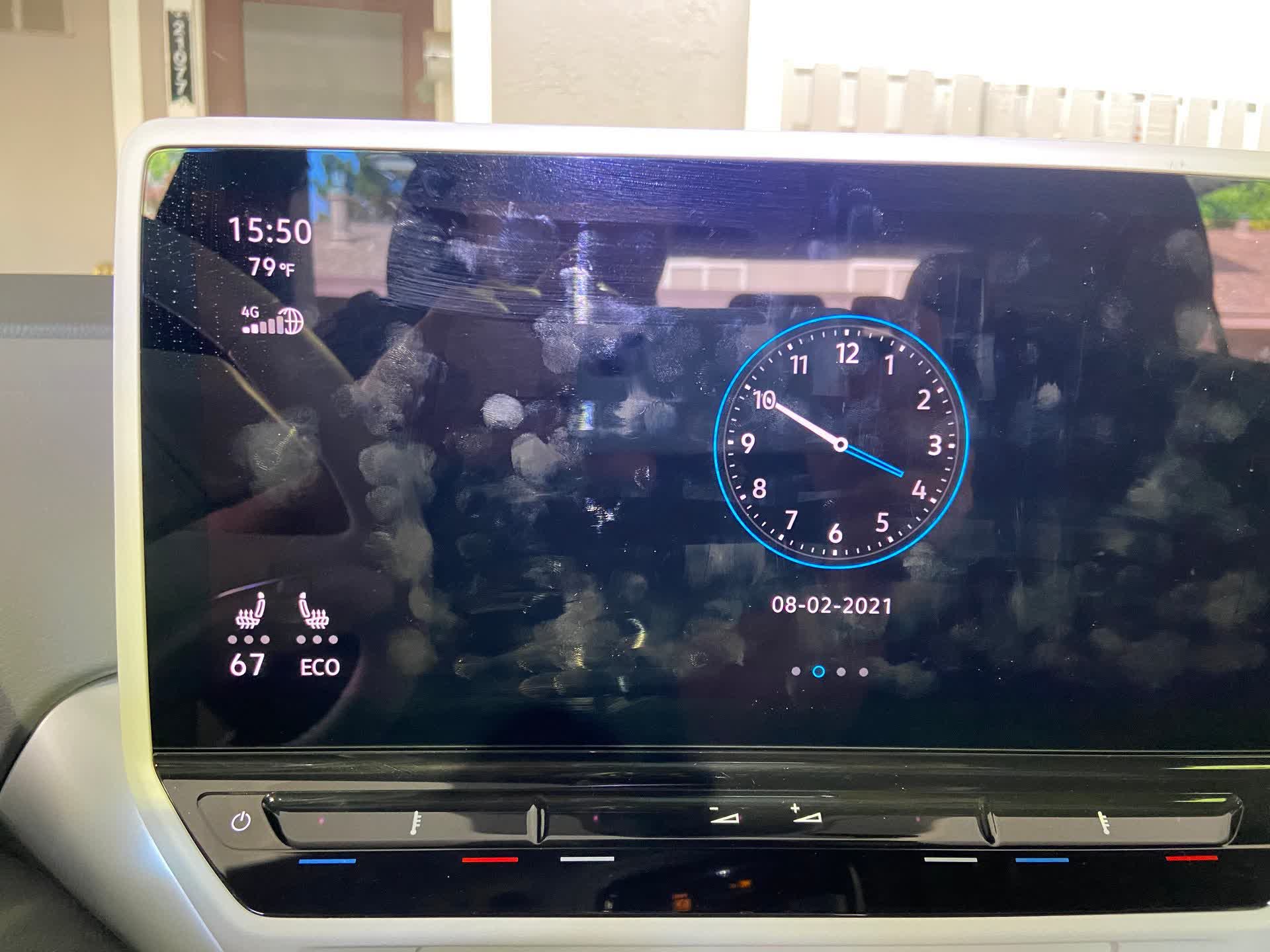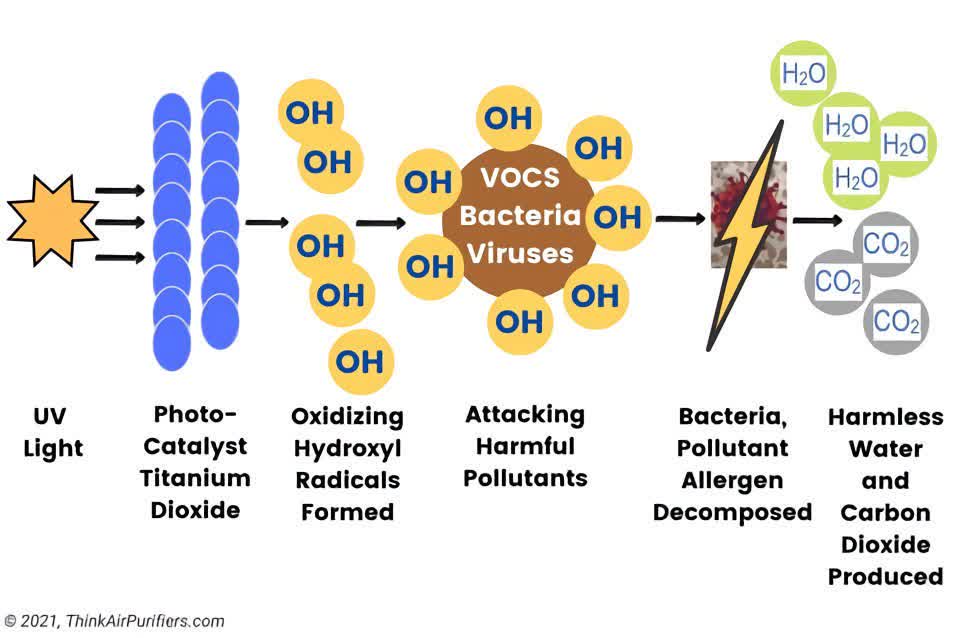Getting harder to go old-school: Despite my friend Luke Plunkett's disdain for infotainment systems, the once-luxury, now-standard car accessory has become ubiquitous. The only way to get a new vehicle without a big screen in the middle of the dash is to special order it.

As Plunkett argues, there are many advantages to having old-school buttons and knobs instead of a touchscreen, and they are all very valid and important points, especially those concerning safety. However, one very annoying aspect of the car-infotainment system for obsessive compulsives like me is the fingerprints and smudges.
The first thing I see when I get into my vehicle is how dirty the console is. I immediately reach into the glove box, pull out some Windex wipes, and get to work before starting the car. This annoyance wasn't even a minor issue in the days of knobs and buttons. Now it's a daily chore because you can't do anything without touching the infotainment display. It controls everything.
I thought I was an outlier — an OCD freak that was singular in his obsessive annoyance with dashboard smudges, but apparently, I'm not alone. It turns out there are others, and enough of them for GM to take action.

See what I mean? I can't stand that.
The US Patent and Trademark Office granted a patent to General Motors for a high-tech self-cleaning infotainment screen. The application describes a "photocatalytic" cleaning system that uses ultraviolet light to remove fingerprints, smudges, oils, and other organic matter overnight.
It starts with modified pixel arrays in the display. In addition to the typical red, green, and blue LEDs, GMs screen adds a fourth ultraviolet pixel. Then the screen's surface is treated with a photocatalytic coating triggered by UV light. The patent was vague about what type of catalyst it would use.
"In another feature, the photo-catalyst includes an oxide of a first metal, and the oxide is doped with a second metal that is different than the first metal in the oxide," GM said.
The primary catalyst might be titanium dioxide, used to treat self-cleaning solar panels in combination with another metal oxide. Titanium dioxide is hydrophobic (repels water), but when exposed to ultraviolet light, it becomes super-hydrophilic (attracts water). In the later state, the screen pulls in vapor from the air, creating a microthin coating of water on the screen, which then oxidizes.

"It starts oxidizing that water to electrochemically generate free radical molecules, which attack the cell walls, cytoplasm, and DNA of bacteria, fungi, and other biological organisms," New Atlas notes. "Effectively, it kills most organic material on the surface, breaking down oil residues and other debris as well. So it slowly cleans and sterilizes the screen."
Theoretically, the screen might get enough UV light during the day, but since this is the time most people use their vehicles, and thereby the touchscreen, it becomes counterproductive. So the system can be started manually or be set on a timer while the car is parked in a garage or a driveway overnight.
The patent doesn't mention health risks like UV-triggered skin cancer. Presumably, the pixel arrays would not output very much ultraviolet light, perhaps even less than you would receive on a walk outside or just driving in daylight hours. Although there is no guarantee the system will ever move out of the conceptual stage, GM would likely have to jump through many regulatory hoops, including extensive testing, to make sure it's safe to use before going into mass production.
Image credit: Autoblog Uruguay